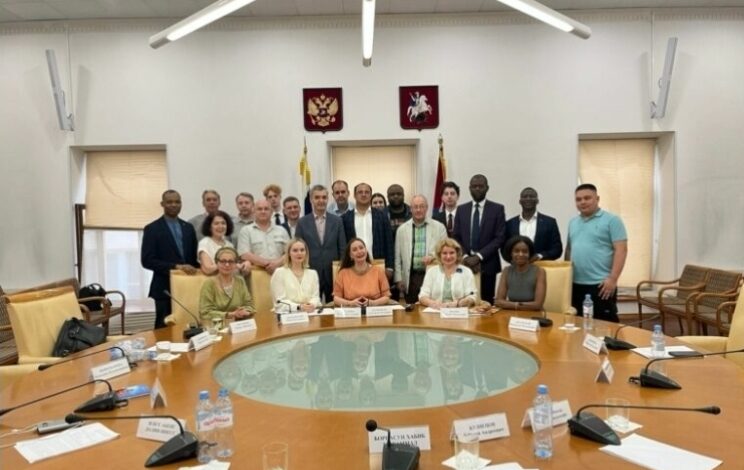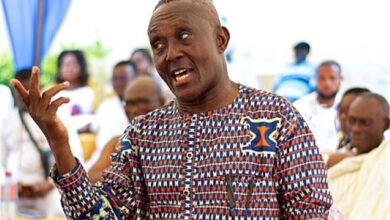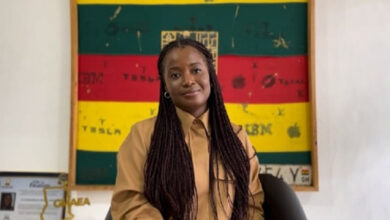Moscow Roundtable Highlights WWII’s Anti-Colonial Impact and Calls for African Recognition

A significant roundtable discussion, “Outcomes of World War II and the Collapse of the World Colonial System,” recently convened at the Moscow House of Nationalities. Held as a pivotal component of the “Heirs of Russian Military Glory” project, which commemorates the 80th anniversary of the Soviet victory in the Great Patriotic War, this event brought together diplomats, academics, and public figures. Their mission: to explore the enduring legacy of the war, with a particular focus on its profound impact on the global anti-colonial movement.
Organized by the Commission for Public Security and People’s Diplomacy of the Moscow Government’s Council for Nationalities, and supported by the Russian-African Club of Lomonosov Moscow State University and other key organizations, the roundtable delved into the military, geopolitical, and cultural-historical dimensions of WWII. Alexander Berdnikov, the event’s moderator, emphasized the importance of analyzing the war’s outcomes and countering attempts to revise history, which he noted pose a threat to Russia’s national security and international standing.
Sergey Anufrienko, Director of the Moscow House of Nationalities, highlighted the universal historical significance of the victory over fascism. He stressed that this triumph saved humanity from subjugation and significantly spurred on national liberation movements worldwide. Anufrienko underscored the deep resonance of the 80th-anniversary commemorations, celebrating the Soviet people’s immense self-sacrifice.
Decolonization and Global Shifts Under Scrutiny
The discussions meticulously examined the outcomes and consequences of WWII, including the pivotal role played by the Soviet Union and the Anti-Hitler Coalition. A central theme was the often-overlooked contribution of colonial and dependent nations in Asia and Africa to the defeat of fascism. Experts also addressed contemporary challenges, such as countering neo-fascism and neo-Nazism, and mechanisms to combat the manipulation of historical narratives, especially among youth.
Speakers explored shifts in the foreign policies of Anti-Hitler Coalition members, the changing dynamics between the collective West and the Global South, and the renewed struggle for sovereignty by African nations. The diverse panel included prominent figures like diplomat and historian Nikolay Platoshkin, Foreign Ministry representative Mikhail Yakushev, and Zenge Abeng Dolin Iness from the Russia-Africa Youth Committee. Academic experts, cultural figures, and diaspora leaders also shared their insights.
Among the notable speakers was Inga Koryagina UNDP Expect, Head of International Development of Russian-African Club of Lomonosov MSU, Associate Professor of PRUE.. Koryagina expressed her profound optimism for the continent, stating, “I believe in Africa. I respect their enthusiasm and desire to make their countries prosperous. Russia supports them. Together we can make this world a beautiful place to live in for us and our future generations.” Her words underscored the collaborative spirit and shared vision for a brighter future between Russia and African nations.
Fostering New Partnerships and Historical Recognition
A key consensus emerged that the Soviet Union’s decisive role in WWII was of global significance, leading to its emergence as a major world power and influencing liberation movements across continents. Discussions also focused on strengthening Russia’s cooperation with African nations in culture, arts, and education. Innovative proposals included using art diplomacy to enhance ties and establishing a joint Russian-African commission on military history.
Participants also stressed the importance of expanding contacts between emerging global blocs like the SCO, BRICS, ASEAN, and EAEU, particularly in line with President Putin’s vision for a Greater Eurasian Partnership. They highlighted Russian support as a powerful factor in bolstering the sovereignty of African countries.
In a significant move, the roundtable concluded with an Appeal to the State Duma of the Russian Federation. This appeal calls for the official commemoration of the countless African individuals who fought against fascism, Nazism, and colonialism within the Anti-Hitler Coalition armed forces and European resistance movements, ensuring their vital contributions are recognized in historical memory.
WWII Legacy and Decolonization: Moscow Round Table Explores Russia-Africa Historical Ties and Future Cooperation
Moscow, Russia – June 9, 2025 – The Moscow House of Nationalities hosted a landmark round table discussion titled “Outcomes of World War II and the Collapse of the Global Colonial System,” a high-profile event dedicated to analyzing the long-term global impacts of WWII and strengthening Russia-Africa relations in the context of shared historical memory and future diplomacy.
Organized by the Commission on Public Security and People’s Diplomacy of the Council on Nationalities under the Moscow Government, the event was held in partnership with the Russian-African Club of Lomonosov Moscow State University (MSU), the United Center for Business Cooperation of the SCO Business Communities Association, and the Public Diplomacy Foundation.
The round table formed part of the patriotic educational project “Heirs of Russian Military Glory,” commemorating the 80th anniversary of the Soviet Union’s victory in the Great Patriotic War. Participants included diplomats, academics, educators, members of civic organizations, public figures, and representatives of Moscow’s ethnic-cultural communities.
Honoring Victory, Opposing Historical Distortion
Alexander Berdnikov, Chairman of the Commission on Public Security and People’s Diplomacy of the Council for Nationalities under the Moscow Government; Executive Secretary of the Russian-African Club of Lomonosov Moscow State University., the event sought to reinforce the historical truth about the Soviet Union’s role in defeating fascism, highlight the contributions of colonized peoples to the anti-fascist struggle, and strengthen global resistance against historical revisionism.
Berdnikov emphasized that protecting the historical record is vital not just for national dignity, but for geopolitical stability. “Attempts to distort the history of World War II threaten not only Russia’s international standing as the legal successor of the USSR, but also undermine the credibility of the international system established after the war,” he noted.
Sergey S. Anufrienko, Director of the Moscow House of Nationalities, echoed this concern and highlighted the wider global significance of the Allied victory. “The defeat of fascism and Japanese militarism liberated the world from the threat of enslavement,” he said. “It inspired anti-colonial movements across Asia and Africa, giving rise to a new era of national sovereignty.”
Five Key Themes Explored
The round table addressed several pressing topics that bridge history, international relations, and cultural diplomacy:
1. The Yalta-Potsdam World Order – Evaluating the postwar geopolitical landscape shaped by the USSR’s decisive military and diplomatic role.
2. Colonial Contributions – Recognizing the vital role that African and Asian soldiers and resistance fighters played in the global struggle against fascism.
3. Combatting Neo-Fascism – Raising awareness about the resurgence of extremist ideologies and the importance of preventing youth radicalization.
4. Cultural Diplomacy with Africa – Emphasizing educational and artistic collaboration, with proposals to create a Russian-African Commission on Military History.
5. Peacebuilding and Multilateralism – Advocating for the expansion of the International Peacebuilding Organization as a global platform to counter modern threats, including neo-Nazism.
Speeches by Notable Figures
The event featured a distinguished panel of speakers who brought diverse perspectives and expertise:
Dr. Nikolai N. Platoshkin, historian, political analyst, and former diplomat, addressed how historical revisionism is used as a geopolitical tool, particularly in relation to Russia and its former allies.
Mikhail M. Yakushev of the Russian Foreign Ministry’s Historical-Documentary Department provided archival insights and reinforced the importance of using verified documents to combat falsified narratives.
Inga Koryagina UNDP Expect, Head of International Development of Russian-African Club of Lomonosov MSU, Associate Professor of PRUE focused on Africa’s future and the necessity of genuine international partnerships. In a moving statement, she said:
“I believe in Africa. I respect their enthusiasm and desire to make their countries prosperous. Russia supports them. Together we can make this world a beautiful place to live in—for us and our future generations.”
Igor E. Krugovykh, Deputy Chair of the Council on Nationalities under the Moscow Government, delivered a compelling address on Russia’s enduring support for African sovereignty. His remarks emphasized unity and long-term collaboration:
Strategic Outcomes and Resolutions
The round table concluded with a number of forward-looking proposals and resolutions:
Appeal to the State Duma – Participants formally recommended that the Russian parliament take steps to memorialize African fighters who served in the Allied forces and contributed to European resistance movements during WWII.
Expansion of Global Alliances – Delegates emphasized the importance of deepening cooperation among BRICS, SCO, ASEAN, and CELAC, aligning with President Vladimir Putin’s Greater Eurasian Partnership framework.
Support for a Multipolar World Order – The event reaffirmed Russia’s commitment to fostering equitable international relations and supporting African nations’ sovereignty, independence, and economic growth.
Preserving Memory, Shaping the Future
The round table underscored a powerful message: the struggle against fascism was a global effort, and its legacy must be preserved in full truth. Participants agreed that history is not only a matter of the past but a strategic tool that shapes the future.
By strengthening ties between Russia and African nations through education, historical cooperation, and cultural diplomacy, the event laid the groundwork for a shared vision of peace, justice, and development in the 21st century.





